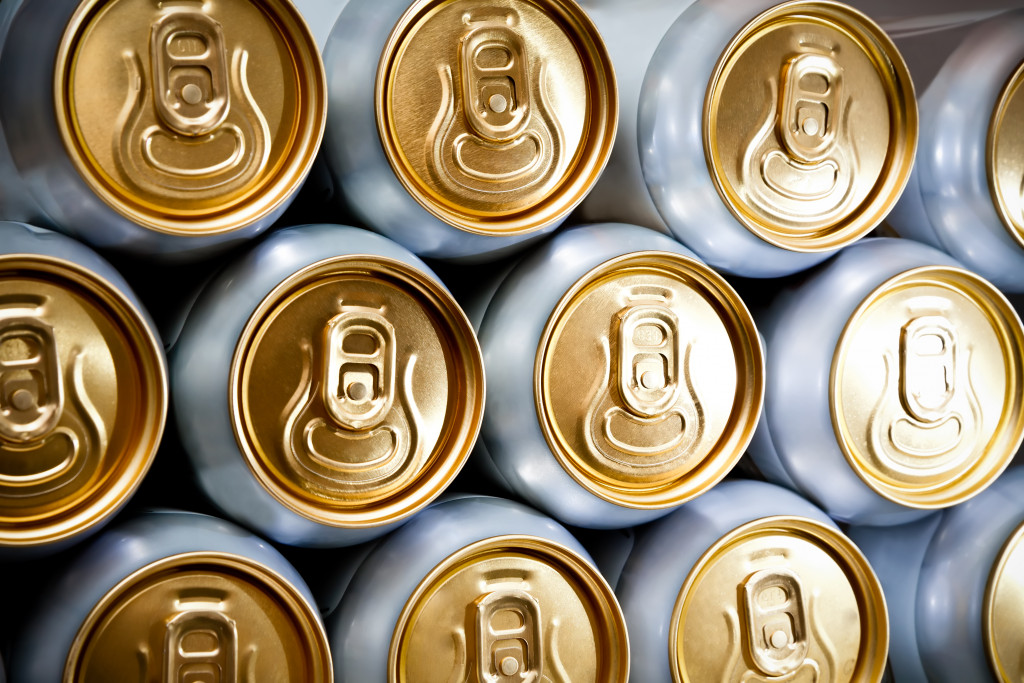- Find reliable suppliers with a proven track record to avoid problems related to sourcing.
- Differentiate your brand by focusing on quality, sustainability, and ethical business practices to battle competition.
- Analyze inventory levels, keep accurate records, reduce waste and spoilage, and invest in technology to manage inventories better.
- Stay up to date on safety regulations and equipment maintenance to ensure your products are safe for consumption.
- Create a sales strategy that aligns with your objectives and integrates all marketing channels to handle complex sales channels.
Starting a company in the food and beverage industry is no easy task. This industry can be ruthless, complicated, and frustrating. Every day brings new challenges when it comes to sourcing, marketing, and selling food products. Despite the obstacles, many passionate food entrepreneurs worldwide still fight to keep their businesses running.
This blog highlights some common problems related to starting and running a business in the food and beverage industry and offers suggestions on how to overcome them. The information in this blog will help you build and maintain a long-lasting food business.
Finding the Right Suppliers
Finding the right suppliers is one of the biggest problems you’ll face as a food and beverage company. Plenty of mediocre suppliers out there don’t take the time to understand your business needs. To avoid problems related to suppliers, look for ones with a proven track record and understand the importance of quality.
Battling the Competition
Consumer tastes constantly evolve, and the food and beverage market is incredibly competitive. Massive companies often flood the market, making it difficult for small businesses to succeed.
However, making a name for yourself and developing a devoted customer base is still possible. To do this, differentiate your brand by focusing on quality, sustainability, and ethical business practices.
Managing Inventory
Managing inventory requires careful planning and execution. It can be difficult to order and store supplies, manage production levels, and deliver finished products on time. To manage inventory more efficiently, here are four steps you need to take:
Analyze current inventory levels.

By analyzing your current inventory levels, you can better understand what needs to be ordered and when. You should also keep an eye out for any potential bottlenecks in production.
Keep accurate records.
To streamline your inventory management process, keeping accurate records of orders and deliveries is essential. This will help you avoid running out of products or overstocking your warehouse.
Reduce waste and spoilage.
Food products have a short shelf life, so minimizing waste and spoilage is vital. Have a system in place for tracking expiration dates and take steps to reduce the risk of overstocking or ordering too much.
Invest in technology.
Technology can significantly improve your inventory management process. Investing in an automated system will help you keep track of orders, deliveries, and stock levels more quickly and easily.
By managing your inventory correctly, you can ensure that you always have the right amount of products to meet consumer demand.
Keeping up with Safety Regulations
Safety regulations are constantly changing in the food and beverage industry, so it’s essential to stay up-to-date on all relevant laws. Make sure you have a thorough understanding of local, state, and federal safety standards before you start selling products. Also, consider getting professional help to ensure that your business complies with all applicable rules.
You should also keep up with equipment maintenance. This includes regular cleaning and disinfection of equipment to ensure that your food and drinks are safe for consumption. You should also use the proper techniques and materials needed to clean and maintain specialized equipment.
For example, you might need to use special weld-cleaning products for food-grade stainless steel equipment. Products like stainless steel weld cleaning fluid are designed to remove discoloration and prevent the spread of bacteria in these types of equipment. These products are essential for food businesses that want to maintain the highest standards of safety and hygiene.
Handling Complex Sales Channels

A successful food and beverage company will have to navigate a complex network of sales channels. This includes online sales, brick-and-mortar stores, distribution networks, and various marketing channels. To effectively manage this, create a workable sales strategy that aligns with your business objectives and integrates all marketing channels.
Starting and running a business in the food and beverage industry can present many challenges. From finding reliable suppliers to keeping up with safety regulations, you need to consider plenty of things when managing your company.
By utilizing the tips provided here, however, you should be able to overcome these common problems and create a thriving food business that stands out from the competition. Even small companies can succeed in this highly competitive industry with dedication and hard work.

